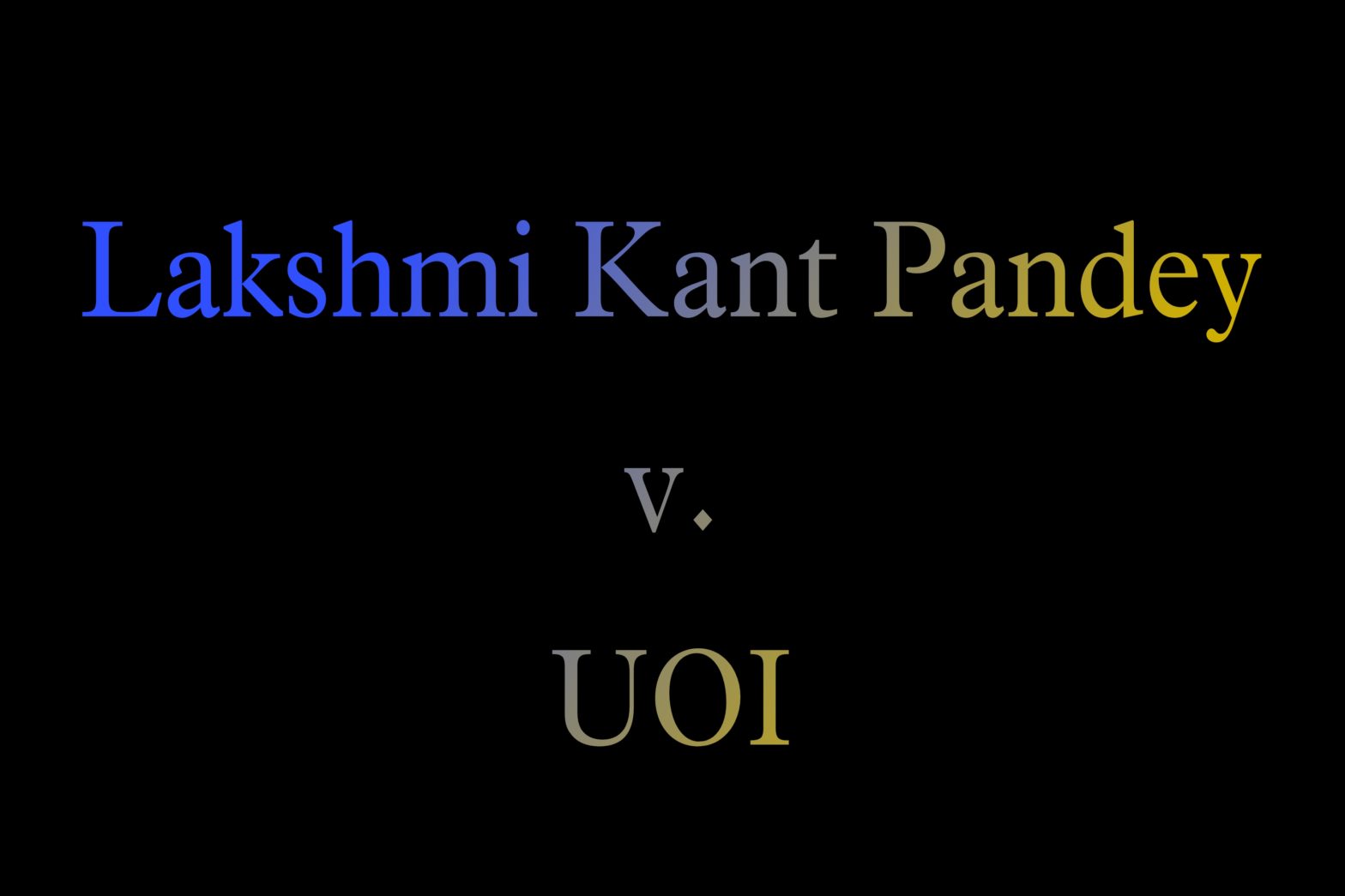Citation: 1973 AIR 23
Date of Judgement: 6/ 02/ 1984
Parties Involved: Petitioner- Lakshmi Kant Pandey and Respondent- Union of India
Facts
The petitioner, an advocate of the Supreme Court addressed a letter in the public interest to the Court, complaining of malpractices indulged by social organizations and voluntary agencies engaged in the work of offering Indian Children in adoption to foreign parents, the petitioner alleged that not only Indian Children of tender age is under the guise of adoption “exposed to the long horrendous journey to distant foreign countries at great risk to their lives but in cases where they survive and where these children are not placed in the shelter and Relief Houses, they in course of time become beggars or prostitutes for want of proper care from their alleged foster parents.”
The petitioner, accordingly, sought relief restraining Indian based private agencies “from carrying out the further activity of routing children for adoption abroad” and directing the Government of India, the Indian Council of Child Welfare and the Indian Council of Social Welfare to carry out their obligations in the matter of adoption of Indian Children by Foreign parents. Being public interest litigation, the letter was treated as a writ petition.
Issue
Whether alleged adoption agencies perform malpractice and neglect when approving intercountry adoptions?
Holding

The Supreme Court of India in its judgment gave directives and guidelines in processing adoptions to foreign parents under the Guardian and Wards Act, 1890. Supreme Court formulated the normative and procedural safeguards to be followed in giving an Indian child in adoption to foreign parents. Supreme Court held that any adoption in violation of or non-compliance with the directives outlined in this judgment may lead the adoption to be declared invalid and expose the person concerned to strict action including prosecution.
The Supreme court laid rules and norms. The recognized placement agency processing the application of a foreigner for being appointed guardian of a child with a view to its eventual adoption should be entitled to recover from the foreigner, cost incurred in preparing and filing the application and prosecuting it in court including legal expenses, administrative expenses, preparation of child study report, preparation of medical and I.Q. Reports, passport and visa expenses, and conveyance expenses, and other such expenses may be fixed by the court, not exceeding Rs.6000. This rule is made, so that adoption agencies do not sell Indian children for money, in foreign markets.
Comment
In my opinion, Human trafficking is no foreign concept to us, and we all are aware that this malice act is practiced all over the world. And inter-country adoption, without any laws, makes it easy for people with greed and malicious intentions all the easier. And after the laws being stricken for inter-country adoption, fewer cases of Indian children being abandoned on a foreign land by their adoptive parents are reported and we can certainly see a dip in human trafficking on Indian children in foreign, which shows that the supreme court once again has proved itself and decided the case with brilliancy.
Given that the Court treated a letter as a petition, this case is an excellent example of how the procedural innovation of public interest litigation in India has eased rules of standing towards making the court system more accessible to disadvantaged sections of society. It also stands as an example of the judicial activism of the Indian Supreme Court.
